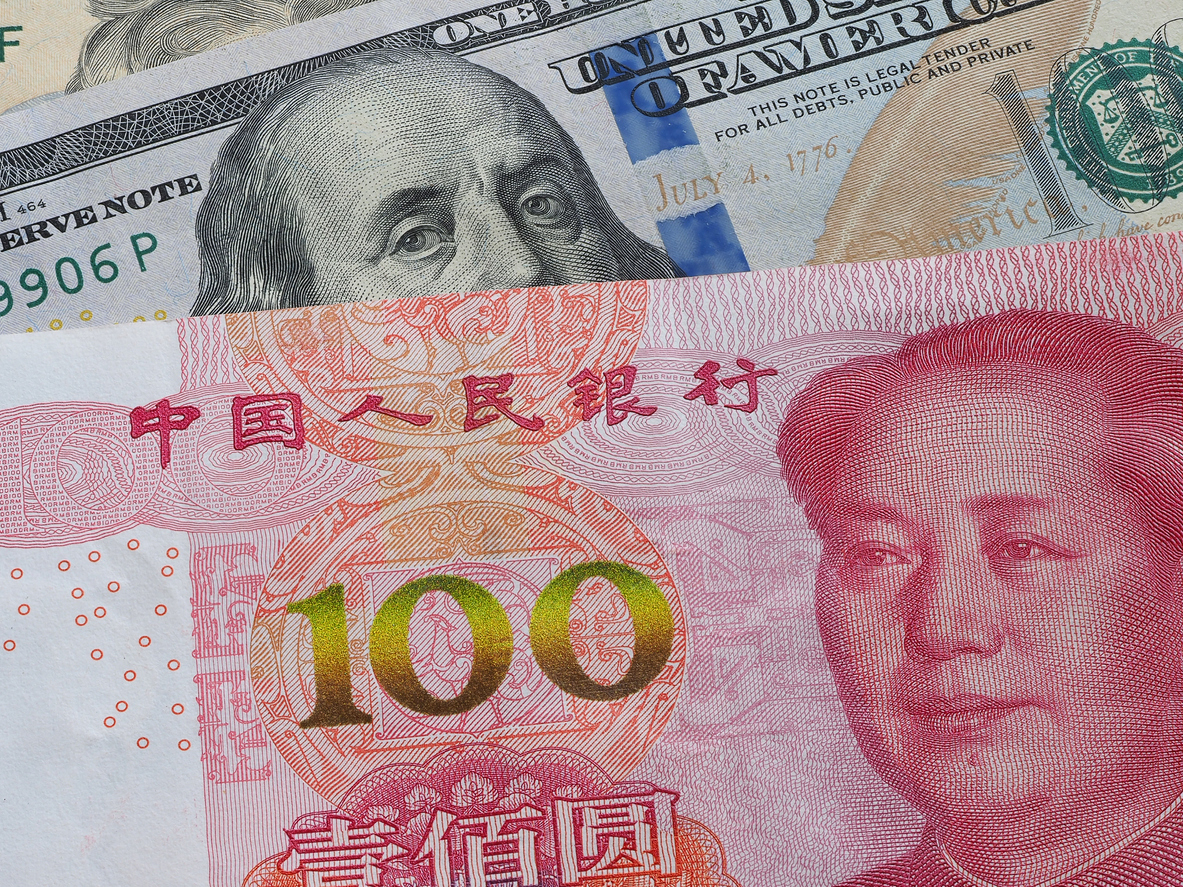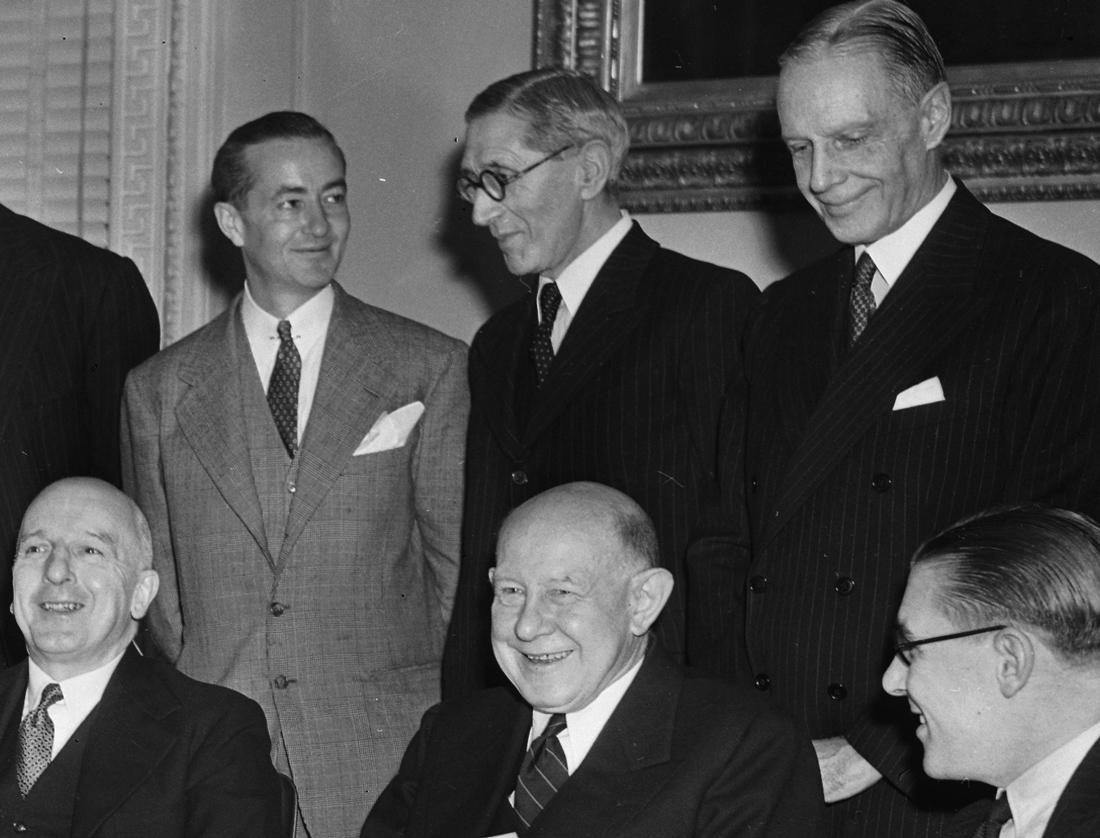In this mailing: - Judith Bergman: Biden's Middle East: Saudi Arabia Embraces China; Will They Topple the Dollar?
- Amir Taheri: The Middle East: An American Vision
by Judith Bergman • April 20, 2022 at 5:00 am If Saudi Arabia were to break the tradition of pricing its oil in US dollars, as it is contemplating doing, others could well start to price oil in Chinese yuan or other currencies -- negatively affecting the US dollar's status and potentially the entire US economy. "China must brace for a full-blown escalation of the struggle with the United States and prepare to gradually decouple the Chinese yuan from the US dollar." — Zhou Li, former deputy director of the Communist Party's International Liaison Department, South China Morning Post, July 5, 2020. That Saudi Arabia now seems to be seriously considering selling its oil in yuan signifies the extent to which the Biden administration's Middle East policies have left countries such as Saudi Arabia hedging their bets on China, as the ascendant power in the Middle East. China, on the other hand, is simply taking advantage of the current US administration's deprioritization of the region and its alienation of strategic US allies such as Saudi Arabia. That alienation has mainly come, according to reports, because of Saudi "security concerns" -- a diplomatic euphemism, presumably, for America's enabling Iran to acquire nuclear weapons. This game-changer is doubtless seen by Saudi Arabia and other oil-rich Sunni Gulf states, as a mortal danger. The vacuum that the US left behind -- the second one after Afghanistan -- is rapidly being filled by China. The Belt and Road Initiative (BRI) initiative seeks dramatically to enhance China's global influence from East Asia to Europe by making countries worldwide increasingly dependent on China. China has signed cooperation agreements with 19 Arab countries for construction projects under the BRI. China is also Saudi Arabia's largest trading partner -- an arrangement that extends to military cooperation.... In August 2021, the fifth China-Arab States Expo took place in China; during it, agreements worth an estimated $24 billion in investments between China and Arab countries were made.
 If Saudi Arabia were to break the tradition of pricing its oil in US dollars, as it is contemplating doing, others could well start to price oil in Chinese yuan or other currencies -- negatively affecting the US dollar's status and potentially the entire US economy. (Image source: iStock) Saudi Arabia is considering selling oil to China -- which buys more than 25% of Saudi oil exports -- in exchange for yuan (China's currency), according to a recent report by the Wall Street Journal. The move would be unprecedented. Saudi Arabia, ever since its 1974 agreement with US President Richard Nixon, has been selling oil in exchange for US dollars. The change, if realized, would be significant. The status of the US dollar, including as the world's reserve currency, depends on its dominance of global markets, especially the oil market, where 80% of sales are done in US dollars. If Saudi Arabia were to break the tradition of pricing its oil in dollars, as it is contemplating doing, others could well start to price oil in yuan or other currencies -- negatively affecting the US dollar's status and potentially the entire US economy. Continue Reading Article by Amir Taheri • April 20, 2022 at 4:00 am "If my experiences in the days and weeks devoted to this problem have taught me any one thing, it is that everywhere the need is felt for an American foreign policy -- a foreign policy so firmly embedded on principle that it will hold equally for United States troops in China or the atom bomb, or Palestine." — Bartley Crum. [Crum's] account ... clearly shows that President Truman, who always... sided with the forces of freedom and progress, was often opposed by his own State Department that practiced a value-free diplomacy in the name of preserving the status quo. "We can throw our lot in with the forces... who prop up feudalistic regimes in the Arab states in the hope that these will serve as a cordon sanitaire against Soviet; who believe they can successfully continue the same processes of exploitation in the future which have proved successful in the past. Or we can throw our lot in with the progressive forces in the Middle East. We can recognize that there is a slow rising of the peoples, and that we must place ourselves on the side of this inevitable development toward literacy, health, and a decent way of life." — Bartley Crum. He was against a status quo that subjected the nations of the region to despotism and poverty. He also realized that Arab despots and their hangers-on used the issue of Palestine as a means of diverting attention from their own misdeeds, wasting Arab energies on xenophobia and religious bigotry. The irony in all this was that Great Britain... sided with the Arab despots, and did all it could to discourage and weaken the very forces of reform and change that Crum saw as the natural allies of Western democracies. The history of the past six decades shows that... [b]etting on the Arab "strongmen" was morally wrong and politically shortsighted.... By 1960, the switch that the British had tried to prevent in the Middle East had taken place almost everywhere, leaving the Western powers with no reliable ally but Israel, the very state whose emergence they had tried to prevent. "[H]ere we Americans, too, have compromised with the basic principle of freedom for reasons of expediency. We have taken our cue from those British statesmen who have based their policy.... upon cooperation with local potentates rather than upon promotion of the genuine interests of the masses." — Bartley Crum. Crum believes that Jews in Palestine could bring the modern world to the Arabs.....A Jewish state could be a model of modernity and democracy that Arabs could adopt. Arabs, Crum believed, needed a dose of the same creative spirit, love of hard work, social solidarity and egalitarianism that marked out Jewish settlements alongside poor and insalubrious Arab villages. Crum was shocked to see that none of the Arab witnesses testifying to the mission showed the slightest interest in improving the lives of the Arab masses. In other words, real peace... depends on reform and democratization in the region. Although war has a bad name these days, there are occasions when it is the only reasonable means of preventing even greater tragedies. The Middle East conflict has been and, to a large extent remains, a struggle between the future and the past, democracy versus tyranny, and an open society against closed ones.
 Bartley C. Crum's 1947 account clearly shows that President Harry Truman, who always sided with the forces of freedom and progress, was often opposed by his own State Department that practiced a value-free diplomacy in the name of preserving the status quo. Pictured: Crum (top left) with some of the other members of the Anglo American Committee on Palestine at the U.S. State Department, on January 5, 1946. (Image source Bettmann Collection via Getty Images) Behind the Silken Curtain: A personal account of Anglo-American diplomacy in Palestine and the Middle East
by Bartley C. Crum
New York: Simon and Schuster, 1947. 297 pp. $3.00
In 1946, with the tragic memory of the Second World War still very much alive, few Americans could have imagined, or would have wanted to admit that far away Middle East would soon develop into one of the top concerns of US foreign policy. One American who realized this before many others was Bartley C. Crum, recruited by President Harry Truman to serve as a member of the American team on a United States-United Kingdom mission on Palestine. Although a Republican, Crum enjoyed enough of a reputation as a man who could transcend partisan boundaries to serve under a Democrat president, in the interest of the nation. Continue Reading Article |
|
|
No comments:
Post a Comment